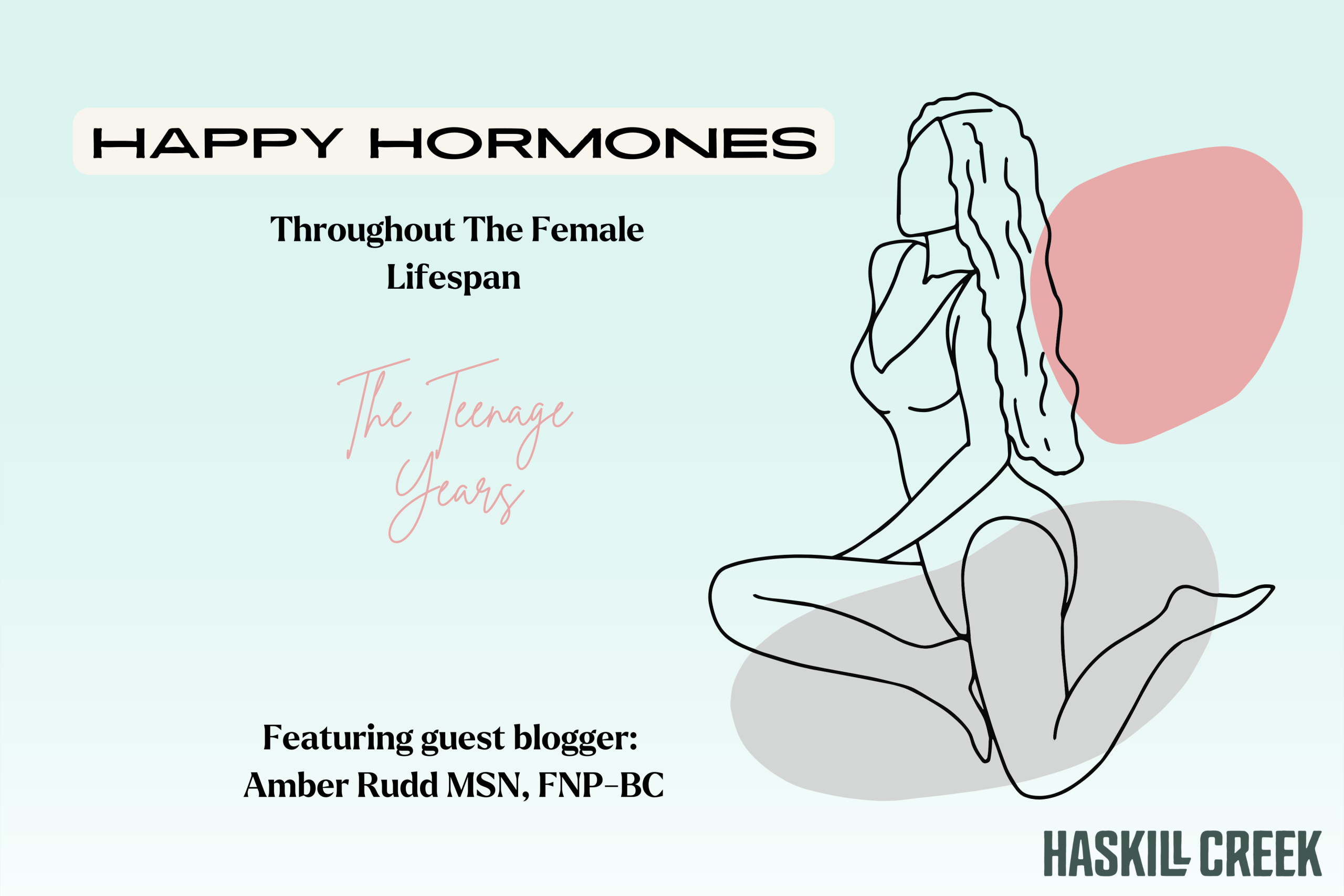Happy Hormones Series: Teenage Years

Welcome to the next installation in our series…
Here we are taking a holistic approach on how to maintain healthy hormones as we go through life's phases. Let's examine the trying teenage years.
Puberty And The Teenage Years
The transition into puberty is a big one. In biological females, it's a time when estrogen, progesterone, and testosterone are all ramping up. Many physical changes take place during this time as well. This includes the two most unwanted symptoms of mood swings and acne. Girls often experience irregular menstrual cycles. This is normal at first and can take several months to balance out. But they can also experience cramping, PMS, and heavy bleeding.
Unfortunately, this is often the time when many girls are put on birth control pills to help control these symptoms. While this may be medically necessary in some cases, there is a better approach. Birth Control Pills can completely shut down their body's natural hormone rhythm. This may mask unwanted symptoms, albeit temporarily. Oftentimes these symptoms will be right there waiting for them (and often worse) when they try to come off it.
Getting To The Root Cause
Diet
To address the root cause- we need to focus on gut health, decreasing inflammation, and helping them get the nutrients they need. A great first step is to be sure kids are eating a nutrient-dense diet with lots of protein. Unfortunately, a large percentage of kids’ diets consist of ultra-processed packaged foods. While we often can’t avoid this completely, we can try to make sure our kids are eating mostly whole foods. This is a great place to start with a big emphasis on quality protein. I like to aim for the 80/20 rule with 80% of foods being whole foods and 20% wiggle room for processed foods.
Lifestyle
Kids need adequate movement and quality sleep daily. I encourage teens to get about 10,000 steps per day. I also encourage them to aim for 8-10 hours of sleep each night for optimal development and well-being.
Stress
Managing stress is another big one – and stress includes screen time. Looking at the blue light on screens and always being “on” triggers cortisol and glucose spikes. It can also alter the hormone signaling of our sex hormones. It’s important to build in screen-free time and engage in fun non-electronic activities, preferably outside.
Nutrient Defiencies
Sometimes it's necessary to fill nutrient gaps and ensure optimal gut health. For this, I recommend getting on a good quality multivitamin and a probiotic- which helps support the gut and detox pathways.
Next in our series…
Happy Hormones Series III: Reproductive Years
Happy Hormones Series IV: Perimenopause & Menopause
Happy Hormones Series V: Post Menopause

Sign up for our newsletter!
Join to get the Haskill Newsletter and be the first to learn about new products, events, and other goings-on at Haskill Creek!









